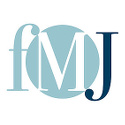Film Music as a Problem in German Print Journalism (1907–1930)

Film Music as a Problem in German Print Journalism (1907–1930)
FWF-Einzelprojekt P 28792
Projektlaufzeit: 2016–2019
Projektleiter: Dr. Francesco Finocchiaro
Mitarbeiterin: Henriette Engelke, MA
Throughout the 1920s, German-language film and music journals addressed fundamental questions about the encounter of music and cinema. Prominent composers, musicologists, film theorists, and philosophers contributed to this broad discussion on the proper role and design of film music, encompassing a wide range of arguments and perspectives.
Film periodicals like 'Der Kinematograph', 'Reichsfilmblatt', 'Film-Kurier', etc. encouraged composers and music directors to contribute to a discussion concerning the art of film music composition at large, ranging from compilation guides to accompaniment practices, and from illustrative techniques to dramaturgic strategies. Thanks to the contributions of film music specialists, such as Giuseppe Becce, Edmund Meisel, Paul Dessau, Walter Gronostay, etc., music journals (e.g. 'Musikblätter des Anbruch', 'Melos', 'Der Auftakt', etc.) also dealt with a large number of questions related to the execution of film music. The techniques of conducting film music were outlined; the basic configuration of a salon orchestra and the peculiarities of certain instruments were critically evaluated; several questions concerning performance practice in film venues or “in atelier” were also discussed.
This journalistic discourse on film music forms the core of the FMJ research project. The research team will examine a representative selection of articles, essays, and reviews published in German-language music and cinema periodicals from around 1907 to the early 1930s. A selected corpus of sources will be incorporated into a digital database in open access. The comprehensive scholarly exploration of these documents will lead to a monographic treatise on the “historical aesthetics” of silent film music.
